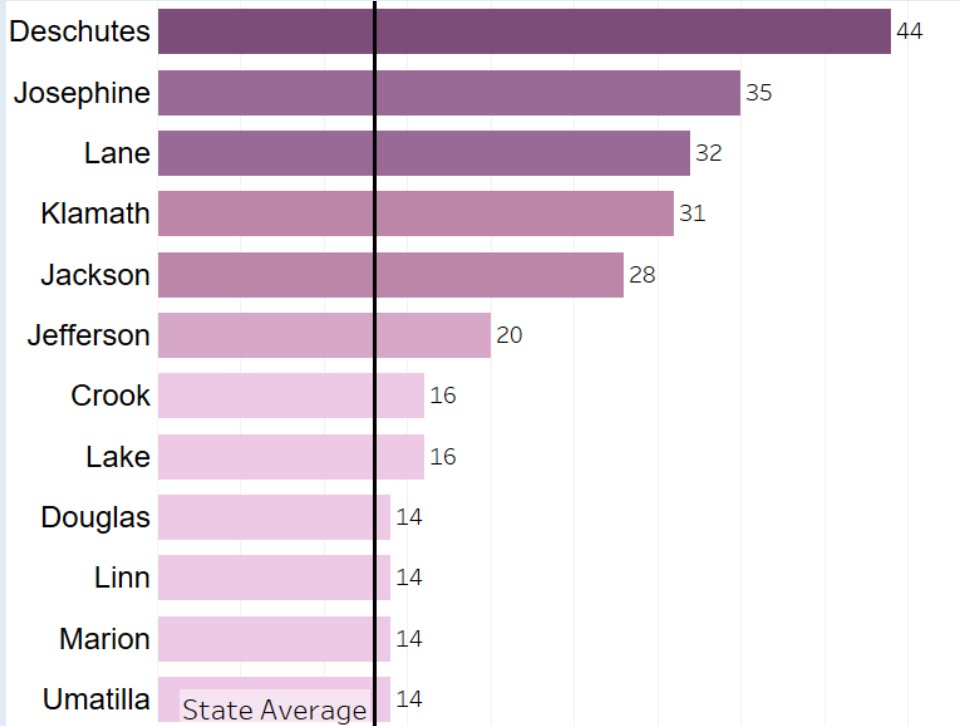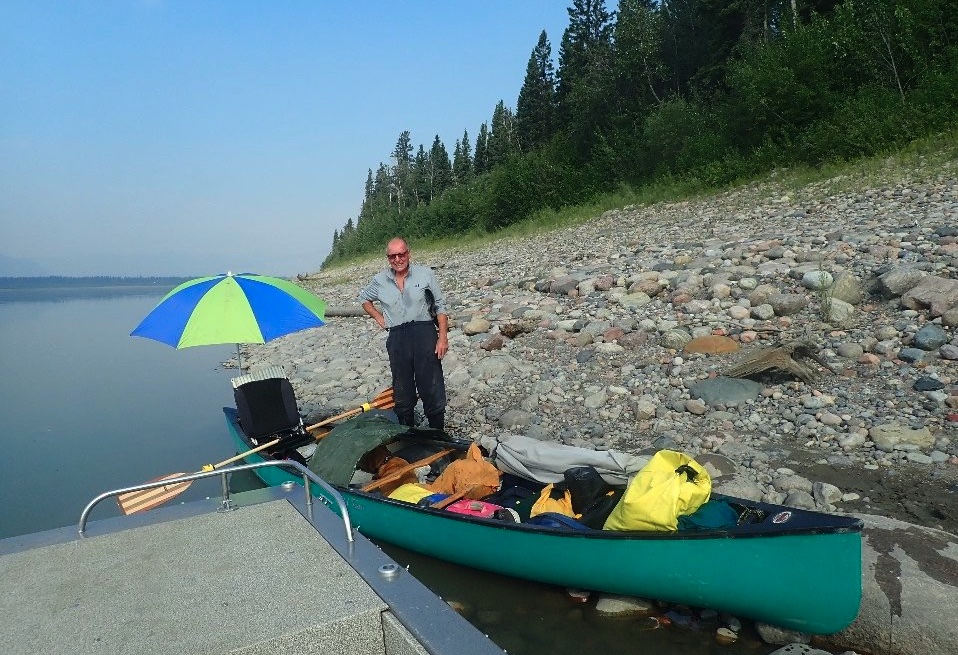Guest column: Wildfire smoke threatens our health and local economy
Published 8:00 am Saturday, January 11, 2025

- Number of wildfire smoke days in 2024
How many times last summer did you stay home because of the thick haze of wildfire smoke blanketing our county? How many times did you have to keep your children indoors? How many times did your friends and family decline to visit because of the polluted air?
As the owner of a brewery with a beer garden and outdoor music venue, we know firsthand that wildfire smoke-outs are becoming more frequent and more toxic to our health, as well as to the bottom line.
The promise of fresh desert air, healthy forests and snowpack-nourished lakes and rivers are why we live and do business here. Our natural wonders are also a huge draw for tourism, a major driver of our local economy.
Wildfire smoke threatens to undermine our way of life here. The thick, hot smoke has become more than an annoyance — it imposes tangible economic costs on everyone.
Families who want to vacation here look at the air quality warnings and decide to spend their money elsewhere. The city of Bend reports that in 2024 the “bed tax” — the revenue generated from tourists who stay in our hotels — was down 7% compared to 2022.
Businesses cut back and workers get laid off. This past summer, my brewpub contributed less to the local economy as we canceled outdoor concerts, closed outdoor seating areas and reduced hours for workers.
Other costs may be difficult to see, because they do not involve monetary transactions. For example, affected families experience heightened fear and anxiety when they see smoke levels rising and know that exposure to smoke increases the risk of dementia, heart and lung disease, and asthma for children. The anxiety grows into agonizing pain when the smoke triggers a trip to the emergency room, hospitalization and even death.
Healthy people forgo outdoor recreation and stay indoors. Parents leave work to care for children sent home from school. Pets and livestock require veterinary visits.
How bad are the economic costs? Preliminary investigations indicate the costs are serious. Data for 2023, just released from the Oregon Health Authority, show Deschutes County experienced 44 days with at least “moderate” smoke — the highest in the state by far.
The Forum on Oregon Climate Economics recently reported that, on average, each day of smoke exposure imposes costs of $450 per household. That means that the costs imposed on households in our county in 2023 from smoke alone approached $20,000 — just for those 44 hot smoky days. And in 2024, wildfires burned 1.93 million acres in our state —18 times more than in 2023.
What should we do? Many in Deschutes County are taking steps to reduce the risks and costs. Many homeowners and businesses, for example, are investing in new air purifiers, tighter window seals and upgraded HVAC systems to reduce the amount of indoor smoke.
Indoor smoke mitigation and prevention will cost a lot of money. I believe those who cause the problem should pay the costs. In particular, the oil and gas industry should pay their fair share. In the 1950s, they knew that burning their products would release heat-trapping greenhouse gases into the atmosphere. They predicted that increased carbon pollution would increase the intensity and duration of wildfires, heatwaves, droughts and floods. But they didn’t warn us. Instead, they deceived us, while raking in trillions of dollars in profits.
More and more states are demanding economic fairness by passing “Make Polluters Pay” laws that require fossil fuel extractors to contribute to “climate superfunds.” The money will be used to upgrade infrastructure, fortify public health services, enhance forest resilience, mitigate risks and adapt to a warming climate.
Toward that end, I call on our elected leaders to do two things. First, begin gathering information that documents the economic costs wildfire smoke imposes on the county, its citizens and its economy.
Second, begin debating the merits of legislation that would require the biggest fossil fuel profiteers to contribute to a fund that would help foot the bill to clean up the damage their decades long campaign of deception has caused.
Taking bold measures to adapt to global warming is not your grandchildren’s problem — it’s your grandparent’s problem. It’s happening now, to all of us, and we can no longer afford to kick the can down the road.
Do you have a point you’d like to make or an issue you feel strongly about? Submit a letter to the editor or a guest column.








